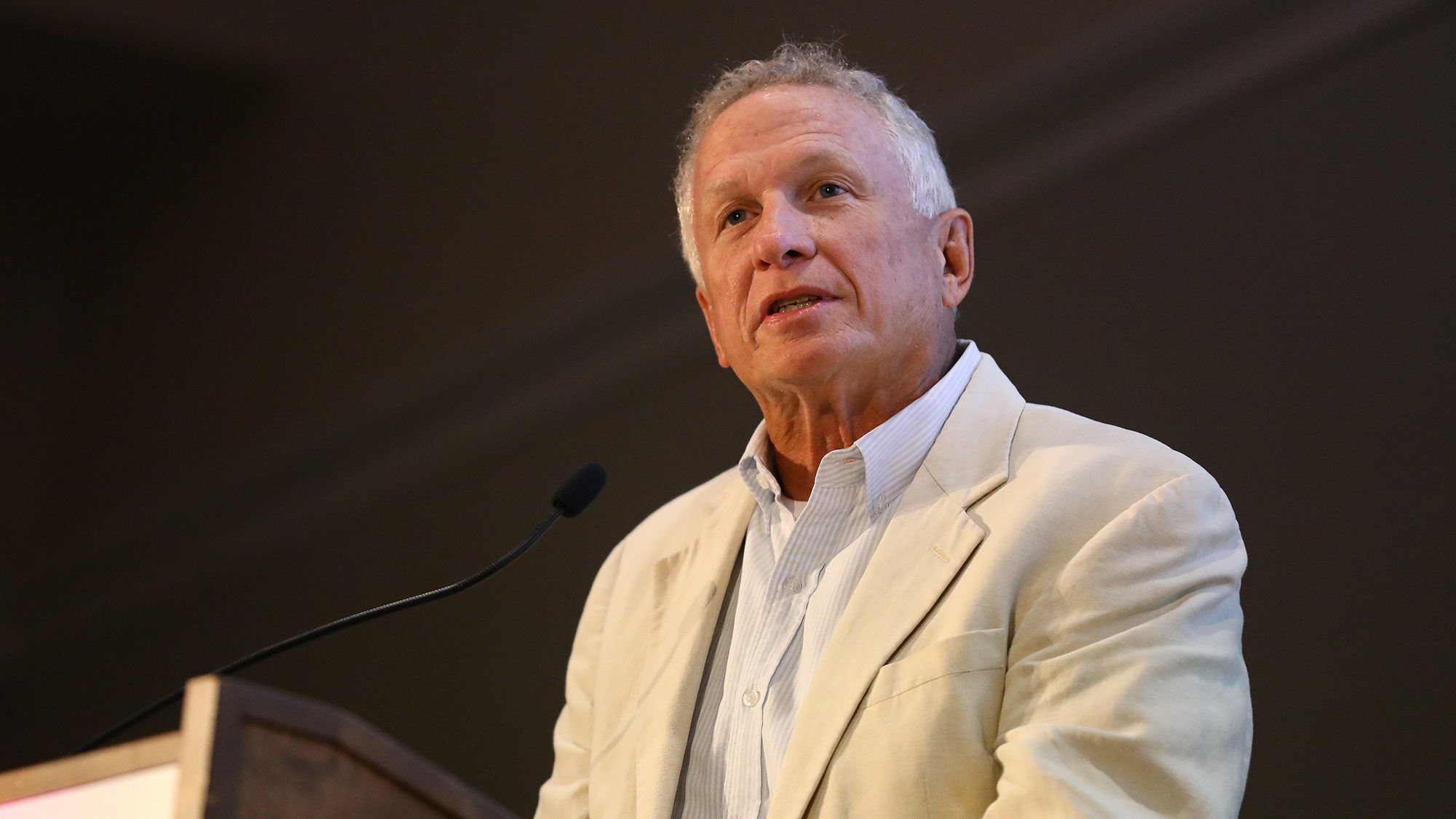
GREENVILLE, S.C. (courtesy furman.edu) — More than a decade after stepping down in 2010, Furman University President Emeritus David E. Shi ’73 “couldn’t be more pleased” to see the school’s national acclaim for the sustainability education, research and leadership initiatives he helped launch. With a $1 million pledge to The Shi Institute for Sustainable Communities, he hopes to help preserve that legacy of sustainability for future generations.
During Shi’s 16-year presidency, the university built Hipp Hall, the first Leadership in Energy and Environmental Design (LEED)-certified building in South Carolina and the first of eight now on campus. The university also adopted a sustainability plan and became a charter signatory of the American College and University Presidents’ Climate Commitment.
Promoting sustainability was “a way of recognizing Furman’s longstanding interest in its own environment,” said Shi, recipient of a lifetime achievement award from the Association for the Advancement of Sustainability in Higher Education (AASHE). “The beauty of the campus is very intentional, going back to the early 1950s when the designers wanted to make one of the most beautiful campuses in the world. And sustainability, of course, is centered on preserving environmental quality.”
A ‘truly transformational’ gift
In 2008, Furman launched an academic hub to promote interdisciplinary research and teaching in support of sustainability on campus and in the greater community. Upon Shi’s retirement in 2010, the Board of Trustees voted unanimously to christen the David E. Shi Center for Sustainability in recognition of his leadership.
The center was a manifestation of what is now known as The Furman Advantage, an educational framework that provides every student an individualized educational pathway and opportunities for high-impact learning experiences, said Shi. The intent was to create “a learning laboratory for the larger academic philosophy that Furman has embraced over many decades to help our students learn by doing rather than just reading textbooks and listening to lectures,” he said.
In 2016, Shi’s $500,000 pledge created an endowed fund to support one of the center’s flagship initiatives, the Student Sustainability Fellowship program, which provides opportunities on and off campus for engaged learning. Now, his $1 million gift to the endowment will help the institute – which was relaunched in 2020 as The Shi Institute for Sustainable Communities – ensure the future of the fellowships along with its other signature programs and services.
The endowment funds are intended to make Furman’s flagship programs financially self-sustaining “and not a perpetual burden on the university’s annual budget,” said Shi, a renowned historian, author and lecturer.
“Dr. Shi’s gift and continued support of the institute is invaluable to our efforts to advance sustainability on campus and in our communities,” said Andrew Predmore, executive director of The Shi Institute. “It is truly transformational, allowing us to do critical work in the areas of climate resilience and biodiversity protection, and ensuring that the solutions identified and implemented are equitable.”
‘Cascading Benefits’
Shi and Predmore agree that The Shi Institute, by stressing community engagement with the pressing issue of sustainability, directly advances Furman’s mission of guiding students toward lives of meaning and consequence.
“A series of cascading benefits occur when we build wider bridges between Furman and the community and find creative, constructive and fulfilling ways for our students and faculty to connect with off-campus individuals and organizations,” said Shi. “It enhances the quality of a Furman education and better positions a graduate to be competitive.”
“David Shi’s gift to our general endowment ensures that Furman’s leadership in sustainability will be lasting,” Predmore said. “It also allows us to direct our energies at the most critical sustainability challenges of our day and involve students every step of the way. Our staff, our student fellows, faculty affiliates and broader Shi Institute network are thankful for this gift and all the impactful work it enables.”
Shi’s gift comes during Clearly Furman, the university’s largest comprehensive campaign to date, which aims to raise $426 million by Furman’s bicentennial in 2026. For Shi, who led Furman during a previous campaign, the role of donor is “much more fun” than the job of appealing to others for gifts.
“This is by no means my final donation to Furman,” he said, “and I hope that is true for all of Furman’s alumni and friends.”
